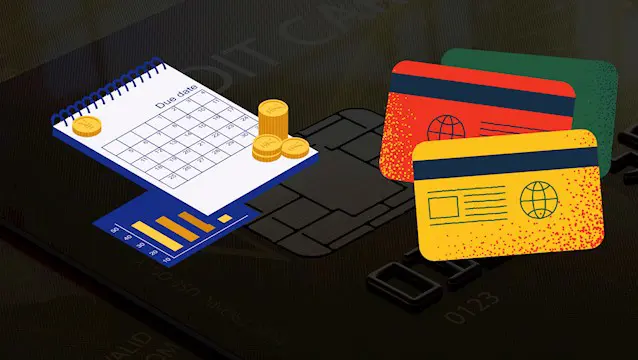
Personal Finance & Credit Masterclass For Beginners
Gain competencies in personal finance, credit,debt and other with practical videos
Frontier Education
Summary
- Reed courses certificate of completion - Free
- Tutor is available to students
Add to basket or enquire
Overview
This personal finance & credit masterclass for beginners course includes a whole host of practical tips and advice, helping you to develop your personal finance & credit skills to become the personal finance expert you can be.
Packed with videos, PDFs and exercises, it'll equip you with what it takes to be a successful financial advisor in today’s business landscape, covering a broad range of topics, from tracking income and expenses to personal budget.
Curriculum
Course media
Description
With expert guidance and a combination of videos, PDFs, and worksheets, this course will enable you to develop your credit profile, become a personal finance expert and unlock your full potential.
This personal finance & credit masterclass course covers:
- Personal budget : what you need to know
- Savings: tailoring your approach to maximise impact
- Mastering budgeting
- Credit profile analysis
- Automating finances
You’ll also be able to access a number of exclusive bonus resources to help you along your personal finance & credit masterclass journey, including:
- Net worth
- Credit scores
- Investing
Course Curriculum :
- Avoid credit card debt that is spent on liabilities
Credit card borrowing rates are egregiously high and paying those rates is an easy way to negatively compound your net worth. If you carry credit card debt for a prolonged period of time, you’re not ready to invest your money in the markets. Make sure if you are carrying a balance, you're buying assets.
- Building credit is important
Likely the biggest expense over your lifetime will be interest costs on your mortgage, car loans and student loans. Having a solid credit score can save you tens or even hundreds of thousands of dollars by lowering your borrowing costs.
- Income is not the same as savings
There is a huge difference between making a lot of money and becoming wealthy because your net worth is more important than how much money you make. Having a high income does not automatically make you rich; having a low income does not automatically make you poor. All that matters is how much of your income you set aside, not how much you spend.
- Saving is more important than investing
Pay yourself first is such simple advice, but so few people do this. The best investment decision you can make is setting a high savings rate because it gives you a huge margin of safety in life. You have no control over the level of interest rates, stock market performance or the timing of recessions and bear markets but you can control your savings rate.
- Live below your means, not within your means
Living within or above your means is how you end up going from paycheck to paycheck without every truly building wealth. The only way to get ahead is by living below your means and setting aside a portion of your income for the future.
- If you want to understand your priorities look at where you spend money each month
You have to understand your spending habits if you ever wish to gain control of your finances. The goal is to spend money on things that are important to you but cut back everywhere else. And if you pay yourself first you don’t have to worry about budgeting, you just spend whatever’s leftover on the things that truly matter to you.
- Automate everything
The best way to save more, avoid late fees, and make your life easier is to automate as much of your financial life as possible. The goal is to make the big decisions up front so you don’t need to waste so much time and energy tending to your finances.
Who is this course for?
This personal finance & credit masterclass is ideal for people looking to progress their career into a financial advisor, for those who want to become personal finance experts, as well as looking to further develop their skills and knowledge.
Questions and answers
Currently there are no Q&As for this course. Be the first to ask a question.
Certificates
Reed courses certificate of completion
Digital certificate - Included
Will be downloadable when all lectures have been completed
Reviews
Legal information
This course is advertised on reed.co.uk by the Course Provider, whose terms and conditions apply. Purchases are made directly from the Course Provider, and as such, content and materials are supplied by the Course Provider directly. Reed is acting as agent and not reseller in relation to this course. Reed's only responsibility is to facilitate your payment for the course. It is your responsibility to review and agree to the Course Provider's terms and conditions and satisfy yourself as to the suitability of the course you intend to purchase. Reed will not have any responsibility for the content of the course and/or associated materials.


